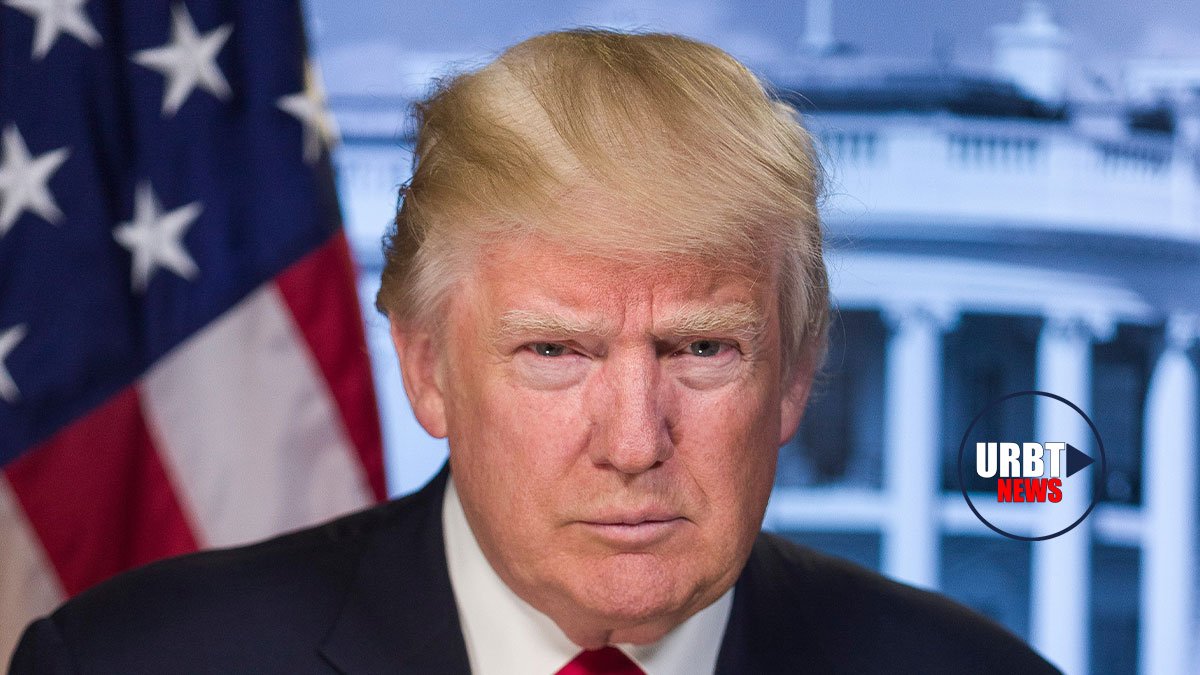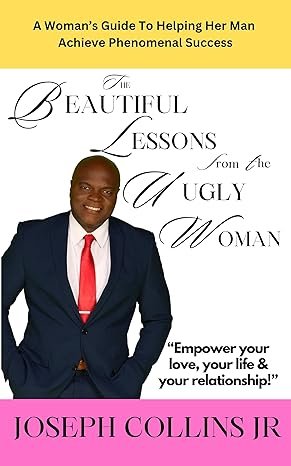
Donald Trump Loses in Colorado Supreme Court
National News
Donald Trump Loses in Colorado Supreme Court
Colorado Supreme Court removes Trump from 2024 ballot due to 14th Amendment’s “insurrectionist ban”.
Published
2 years agoon

Donald Trump Loses in Colorado Supreme Court. Setting up a likely showdown in the nation’s highest court to determine whether the front-runner for the Republican nomination can stay in the race, the Colorado Supreme Court ruled, 4-3, former President Donald Trump ineligible for the White House due to insurrection clause, disqualifying Trump from the primary ballot, staying the ruling until January 4 pending Trump’s appeal to the U.S. Supreme Court, or until the U.S. Supreme Court rules on the case.
Download the URBT News App from your App store. Apple / Andriod
State officials say resolution must be reached by January 5, when the state’s presidential primary ballots are due.
Colorado’s highest court overturned Colorado District Judge Sarah B. Wallace’s ruling that Trump incited an insurrection but ruled he could not be barred from the ballot due to unclear provisions. In a previous ruling, Judge Wallace allowed Trump to remain on the ballot. Still, she found that Trump “engaged in insurrection” for his role in the Capitol riot on January 6.
The Colorado Supreme Court decision will impact the 2024 presidential campaign, requiring resolution by January 5, the GOP primary candidate list deadline.
Fourteenth Amendment
Numerous disqualification lawsuits aimed at disqualifying Trump from office under Section 3 of the 14th Amendment, a law barring anyone who swore an oath to “support” the Constitution and then “engaged in insurrection or rebellion” against it.
The court has made the first history-breaking use of Section 3 of the 14th Amendment to disqualify a presidential candidate.
The 14th Amendment states: “No person shall be a Senator or Representative in Congress, or elector of President and Vice-President, or hold any office, civil or military, under the United States, or under any state, who, having previously taken an oath, as a member of Congress, or as an officer of the United States, or as a member of any State legislature, or as an executive or judicial officer of any State, to support the Constitution of the United States, shall have engaged in insurrection or rebellion against the same, or given aid or comfort to the enemies thereof But Congress may by a vote of two-thirds of each House, remove such disability.”
Download the URBT News App from your App store. Apple / Andriod
Colorado Supreme Court Unsigned Majority Opinion

PICTURE: The Colorado Supreme Court courtroom, located on the fourth floor of the Ralph L. Carr Colorado Judicial Center, located at 2 East 14th Avenue in Denver, Colorado. PHOTO: COURTESY OF: Creative Commons. (Dated: June 24, 2013)
The Colorado Supreme Court held oral arguments, displaying divided opinions on whether the ban applies to Trump.
In its unsigned opinion, the majority wrote, “We do not reach these conclusions lightly.” The court’s majority opinion added, “We are mindful of the magnitude and weight of the questions now before us. We are likewise mindful of our solemn duty to apply the law, without fear or favor, and without being swayed by public reaction to the decisions that the law mandates we reach.”
The majority opinion added, “President Trump did not merely incite the insurrection. Even when the siege on the Capitol was fully underway, he continued to support it by repeatedly demanding that Vice President (Mike) Pence refuse to perform his constitutional duty and by calling Senators to persuade them to stop the counting of electoral votes. These actions constituted overt, voluntary, and direct participation in the insurrection.”
Additionally, the majority concluded “that the foregoing evidence, the great bulk of which was undisputed at trial, established that President Trump engaged in insurrection,” the court’s opinion states. “President Trump’s direct and express efforts, over several months, exhorting his supporters to march to the Capitol to prevent what he falsely characterized as an alleged fraud on the people of this country were indisputably overt and voluntary.”
Furthermore, the court dismissed Trump’s free speech claims. To that end, the court wrote that “President Trump’s speech on January 6 was not protected by the First Amendment.”
Read the 102-page Colorado Supreme Court decision here.
Colorado Supreme Court Minority Opinion
Colorado election law “was not enacted to decide whether a candidate engaged in insurrection,” wrote Chief Justice Brian Boatright, one of the court’s three dissenters. He added that he would have dismissed Trump’s eligibility challenge.
Trump Campaign Responds
The Trump campaign has announced it will appeal the decision to the nation’s highest court, which rules on constitutional issues.
In a statement, Steven Cheung, spokesman for the Trump Campaign said, “The Colorado Supreme Court issued a completely flawed decision tonight and we will swiftly file an appeal to the United States Supreme Court and a concurrent request for a stay of this deeply undemocratic decision. We have full confidence that the U.S. Supreme Court will quickly rule in our favor and finally put an end to these unAmerican lawsuits.”
Trump denies January 6 wrongdoing and 14th Amendment lawsuits, pleading not guilty.
Download the URBT News App from your App store. Apple / Andriod
Colorado Secretary of State Reacts
Colorado Secretary of State Jena Griswold plans to follow court guidance on Donald Trump’s ban from the ballot.
“The Colorado Supreme Court has ruled that Donald Trump is barred from the Colorado ballot for inciting the January 6 insurrection and attempting to overturn the 2020 Presidential Election. This decision may be appealed,” Griswold wrote in a statement.
Republican National Committee Rejoinder
Ronna McDaniel, chairwoman of the Republican National Committee, has criticized the decision as “Election interference.” Additionally, she stated that the RNC’s legal team will assist Trump in appealing the Colorado Supreme Court.
Can Third Party Candidates Take Advantage?
Third-party candidates could significantly disrupt the 2024 presidential elections. Voter dissatisfaction with the two major parties’ choices has led to considering alternative candidates and organizations.
During the upcoming presidential election, third-party candidates will put on some of their best performances. The Libertarian and Green parties comprise most of the top non-major-party vote totals.
Data suggest that these third-party candidates have more votes available to them than ever since the mid-1990s. The question is whether they can take advantage.
In an email exchange with VOA, Kyle Kondik, managing editor of Sabato’s Crystal Ball at the University of Virginia’s Center for Politics, wrote, “The conditions are ripe for third-party candidates to get a bigger share of the vote than they typically do.” Kondik added, “If Biden and Trump are nominated, both have weak favorability numbers, meaning a significant slice of the electorate will hold an unfavorable view of both candidates.”
The 2016 election saw the best third-party results due to the unpopularity of Donald Trump and Hillary Clinton. Exit polls showed only 4 in 10 Americans liked either candidate.
At present, President Biden is the front-runner for the Democratic nomination, and Trump is the front-runner for the Republican nomination. Where do Biden and Trump stand right now? With only about 4 in 10 Americans liking each of them.
According to FiveThirtyEight, a website focusing on opinion poll analysis in the U.S, Biden has an unfavorability rating of 55.6%. Trump has an unfavorability rating of 52.7% as of December 19, 2023.
The Time is Ripe
The 2024 Presidential election cycle may witness significant defection from major parties. If we were going to see a lot of defection from the major parties, it would be now.
If neither Biden nor Trump is palatable to free-agent voters, there could be other options who are.
DOWNLOAD THE URBT NEWS APP Donald Trump Loses in Colorado Supreme Court
You may like
-


Single Men & Step-Fatherhood: Crucial Considerations Before Taking the Plunge
-


Jesse Jackson Dies at 84: Civil Rights Icon’s Legacy
-


Minority Births Surpass White Births: A Demographic Shift Impacting America
-


Hot Girl Summer: Your Guide to Confidence, Fun, and Intentional Living
-


Shrek as a Cautionary Tale: Unmasking the Ogre’s Life Lessons
-


Test Your Spelling Skills: How Good Are You Without Technology?


